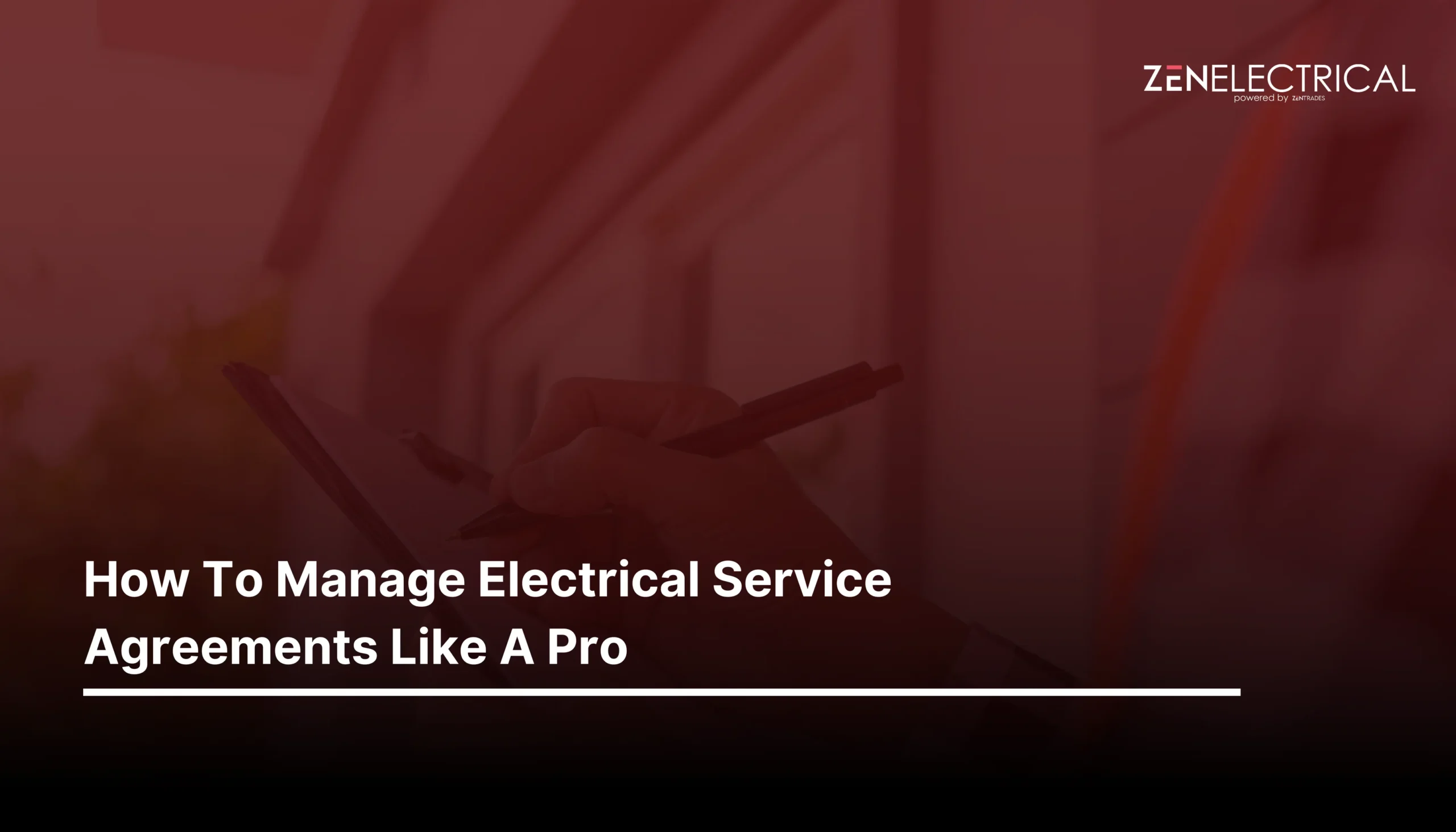How To Start An HVAC Business: The Ultimate Startup Checklist You Need For 2024
- Field Service Management
- 9 Min Read
We all understand how crucial HVAC businesses are when we step into a warm and heated room in the dead of winter or in an air-conditioned building on a hot day. HVAC services can be easily overlooked, but they significantly impact our daily lives. As a potential company owner, you may want to profit from this by studying how to establish an HVAC firm.
A service-based business requires both technological and administrative competence. The HVAC market is valued at $16.54 billion and is predicted to develop further. So running an HVAC company can be incredibly profitable!
If you’ve been working as a technician for someone else’s company or doing HVAC work on the side and want to start your own legitimate heating and air conditioning business and wonder how to start an HVAC Business, this is the perfect guide for you.
We’ll go over everything from how to register your business to how to use HVAC software to automate your thriving business.
You’ll discover carefully chosen tips from successful HVAC business owners and industry experts right here. We’ll discuss the legal and financial obligations, as well as marketing and selling your services.
Beginning a business has its hurdles, which is why you must take the essential steps to build a successful HVAC firm. You must learn how to correctly establish your firm, organize your business strategy, and get your first clients. While this may appear to be a difficult task, there are numerous simple ways to get started.
With the help of this detailed guide, you can create a checklist of all the necessary steps on how to start an HVAC business, and also answers a few important questions first-time contractors may have.
Here What We Cover
Need of an HVAC Business
A heating, ventilation, and air conditioning (HVAC) firm provides specialized services in residential or commercial facilities for heating, ventilation, and air conditioning devices. HVAC technicians are professionally qualified to offer a wide range of services, such as repairs, maintenance, replacement, and installation. HVAC companies also work as subcontractors on construction projects.
When consumers are in a jam, HVAC companies frequently assist them. Emergency repairs and on-site visits when HVAC units fail or need maintenance are examples of this type of labor. As a result, many HVAC businesses provide regular business hours and after-hours services.
You should contact a professional if you need an air conditioner, heat pump, or furnace installed, repaired, or maintained. If an HVAC system in your house is malfunctioning in a way that could endanger you or other residents, you should contact an HVAC contractor for an emergency repair.
HVAC contractors may provide duct cleaning services in addition to heating, ventilation, air conditioning, and occasionally refrigeration. This routine HVAC maintenance technique offers excellent air quality and eliminates dust from the air.
Other HVAC providers may offer repair and maintenance services for boilers and water-based heating systems in addition to HVAC services. These work very differently than HVAC systems and necessitate different skills, but many HVAC contractors are trained in both.

Use our free estimate template now
Make winning quotes in minutes—for any industry and any job.
Types Of HVAC Businesses
No matter what field you begin working in, technical knowledge of HVAC operations is typically identical. As an HVAC business owner, you can opt to offer a few distinct specialties.
The three most frequent types of HVAC companies are as follows:
Residential HVAC providers are most likely to work with homeowners in single-family homes or complexes such as apartments and townhomes. The services provided vary, although most units are tiny and compact.
Commercial HVAC services are appropriate for more significant buildings and retail locations. Units are more prominent and almost industrial in scale, and ventilation is essential.
HVAC contracting: You may concentrate on installation and execution as an HVAC contractor. Builders and construction firms may hire HVAC contractors or specialists to establish heating and cooling plans for new houses and install these systems according to code.
HVAC services can also be classified into
- HVAC maintenance
- HVAC troubleshooting
- HVAC repair
- HVAC ductwork
HVAC maintenance, such as changing belts and filters, lubricating bearings, and adjusting equipment due to wear and tear, is performed regularly to ensure equipment functions properly and efficiently. HVAC ductwork consists of pipe or closed conduits constructed of sheet metal, fiberglass board, or another suitable material used to transport air to and from an air-handling device. HVAC troubleshooting helps to increase the efficiency of a building’s central heating, cooling, and ventilation systems. Most HVAC products are meant to last 15 to 20 years. However, conditions beyond the manufacturer’s control may necessitate repair.
Why Start An HVAC Business?
“Will this company venture be a good idea?” is one of the questions that prospective business owners frequently ask. Although every company decision should be made on an individual basis, there are several reasons why beginning an HVAC business could be beneficial both personally and professionally.
HVAC services are in demand. There is a tremendous demand for qualified HVAC professionals between residential and business prospects. Not only that, but HVAC is necessary for more than just installation. Regular maintenance and replacement are essential to keep these systems working smoothly for years to come.
According to recent HVAC workplace surveys, the upper range for profitability as an HVAC firm owner is relatively high. While several things influence this, including the size of your company and the number of employees, the HVAC industry has room for expansion.
You can impact many aspects of the business. As the owner of your HVAC firm, you have a significant effect on its future. The possibilities range from establishing a business culture and giving employees opportunities to supporting the local community.
The heating, ventilation, and air conditioning sector might be an excellent niche to enter if you have some previous knowledge and a strong work ethic. But, in the end, you must decide whether this competitive market is appropriate for you.
Common Mistakes Of HVAC Start-Up
LACK OF ADEQUATE INSURANCE
You must comprehend liability when you are in charge of installing any piece of equipment in a home or on a property. There are always hazards associated with these services, but there are ways to minimize them. Failure to obtain insurance and the correct license might have devastating repercussions in the event of an accident or mistake.
WAITING TO DEVELOP AN ACCOUNTING SYSTEM
Some business owners believe they will only require accounting once they reach a particular income level. The truth is, you need a structure in place straight soon. Accounting software for small enterprises can help you manage your accounts right away. Starting an HVAC business is significantly easier when you have a sound accounting system in place from the start.
INADEQUATE OVERSIGHT OF INDEPENDENT BUSINESS ACTIVITIES
Your involvement in everyday operations as a business owner may fluctuate over time. You might eventually hire an HVAC specialist and other workers to do much of the legwork. However, regardless of how hands-off you are, you should always keep an eye on the volume and quality of work the hired people are doing.
Get posts like this in your inbox.
Keep learning how to run a 5-star business with our bi-weekly newsletter.
How To Start An HVAC Business
If you want to establish an HVAC firm, you most likely already have some expertise in the sector. Setting objectives is always beneficial, whether you’ve worked in the HVAC sector for a while or are new to the HVAC industry and dreaming big. If starting an HVAC business is on your to-do list, the nine steps below will help you get there.
MAKE AN HVAC BUSINESS PLAN
A good HVAC company starts with a business plan. In that document, you’ll define your local competition, target market, marketing plan, business structure, financial commitments, revenue estimates, and so on. Taking the effort to create a business plan keeps you on track and can help you acquire startup capital from banks or other investors.
Market research is required to establish the viability of your HVAC business. You must know the number of other HVAC companies in your service region, the number of homes, the franchises with which you will compete, the prices the competition charges, and further details. City-data.com, the US Chamber of Commerce, and the Bureau of Labor and Statistics are all excellent sources of information (BLS).
During this stage, you’ll also want to decide on the service area you’ll cover, how far you’re willing to go to a job site, and the working conditions. Will you offer emergency repair service or solely operate during regular business hours?
Google HVAC companies in your area and pay particular attention to the companies’ websites that appear on the first page – that’s where you want to be. To begin working on your digital marketing strategy, a tool like KWFinder can help you identify the keywords your competitors are using so you can outperform them.
This is where you’ll discuss the legal business structure you’ll use. This is required to meet tax requirements and remove personal accountability from any firm. LLCs are a low-cost business form that allows you to remain separate from your firm. During the business setup process, you must meet all local, state, and federal legal requirements, such as business licensing and insurance. Requirements may differ based on where you live and run your business.
It is now time to consider money. You’ll need a separate bank account to make it easy to distinguish between company and personal expenses. Take the time to calculate your income to ensure you set competitive rates while also allowing you to sustain your HVAC business and pay yourself reasonable compensation. When determining your pricing, keep in mind your years of expertise.
GET YOUR HVAC PAPERWORK IN ORDER
Choose a professional, one-of-a-kind, and easy-to-remember business name. Register the name with your local government and decide on a business strategy.
After you’ve decided on a name, consider what business structure you’ll use to run your company.
Every business owner must obtain and renew a business license each year. This guarantees that you are following all local rules and regulations.
Once you have a small business license, you can apply for a business tax number, which will help you stay in compliance and avoid problems if you are ever audited.
HVAC work can be dangerous, so get the correct types of business insurance to safeguard your company and your clients. Then, talk to your insurance carrier about the coverage you’ll need for the HVAC services you perform.
You may require the following types of HVAC business insurance:
- Insurance against general liability
- Insurance for commercial vehicles
- Insurance for workers’ compensation
- Insurance for professional liability
- Insurance for equipment
- Property protection insurance
GET YOUR HVAC PAPERWORK IN ORDER
To operate your firm in most places, you must have an HVAC certification and an HVAC contractor license. These credentials demonstrate that you have been trained to perform safe, high-quality work while adhering to regional trade standards.
HVAC certification from a recognized institution or program is required before working as an HVAC technician. Although not required, a certificate from organizations like North American Technician Excellence or HVAC Excellence can provide additional credentials and make your clients trust your abilities.
While HVAC certification demonstrates your knowledge and skills, an HVAC contractor license is a legal document that allows you to service HVAC systems.
BUY HVAC TOOLS AND EQUIPMENT
You may now narrow down what equipment to acquire based on the services you wish to offer. Here are some popular HVAC tools to have on hand:
FIELD SERVICE MANAGEMENT SOFTWARE
Field service software is the following tool your HVAC company should be aware of. Field service software eliminates the need for ten different apps on your phone or a mountain of paperwork in your technician’s vehicle. You may access all of your demands from a single platform using field service software. Software is increasingly becoming a must-have tool for field-based enterprises, and it can make your technician’s job easier the next time they have to start an HVAC system.
HVAC TOOLS AND APPS
Essential hand tools include screwdrivers, wrenches, pliers, hammers, gauges, metal and tubing cutters, and staple guns.
PPE and safety equipment such as gloves, masks, goggles, and earplugs are recommended.
Core removal tools, thermal imaging cameras, leak detectors, megohmmeters, phase testers, and refrigerant scales are advanced HVAC instruments that vary based on your services.
New HVAC professionals often purchase essential HVAC tools and safety equipment for \$200-300. The amount you spend on advanced tools is determined by your services.
Numerous HVAC company apps are available, ranging from scheduling to installation manuals. HVAC apps can let you log your startup data from the convenience of your mobile or tablet.
HIRE HVAC TECHNICIANS
One-person HVAC companies are relatively frequent. However, if you want to expand, you’ll need aid in the office and the field.
- Examine the numbers (how much money can you afford?)
- Investigate the legal requirements for hiring someone (federal, state, and local).
- Describe the hiring and onboarding processes.
- Create functions to manage salary and benefits.
- Make a job posting advertisement.
Hiring and retaining employees is one of the most difficult challenges that HVAC businesses confront. Many firms experience slow and busy seasons and cannot promise full-time hours all year. Others lose technicians to competitors who can provide higher salaries or better perks.
There is no single source for the most extraordinary HVAC talent. Advertise on significant employment boards. However, you should also explore contacting current employees (if you have any) and other industry contacts for suggestions. Because they are already pre-vetted, many of our professionals find the best personnel through old-fashioned networking.
If you’re recruiting straight out of an HVAC school, you should consider a training program to ensure that your staff can represent your brand appropriately.
RESEARCH COMPETITOR BUSINESS
The HVAC sector is notorious for its intense competition. When entering a new market, you should examine who your competitors are, what they do well, and where they fall short.
Capitalizing on the sections of their businesses where they aren’t investing much time or money will help you win in that market — and eventually bleed over and capture their clients.
To begin, learn about the HVAC services they provide their consumers. Find out their pricing if you can get so that you may give comparable but competitive rates.
Is there a warranty on their air conditioners and heaters? Do they provide an HVAC maintenance contract? Are they investing in SEO and paid to advertise?
UNIQUE VALUE PROPOSITION
A value proposition is an idea or statement communicating your offer effectively to customers. This usually goes above and beyond the standard or primary level of service that most people expect.
Think critically about what a customer can expect when choosing your firm above others as you create your value proposition over time. Will you provide any special discounts or bundle deals? Do your workers have any special certificates or licenses for HVAC?
Your value proposition also influences marketing, advertising, social media, and lead generation decisions. The more specific you are, the better prepared you will be to market your services through social media and other channels.
SET RATES AND PRICING STRUCTURE
It can be challenging to find the correct price point. While your prior knowledge and industry norms might be helpful guides, you must also evaluate your overheads and other expenses that you may not have addressed as a technician.
- Make a list of the services you can or want to offer.
- Make a price list for every service you offer.
- Choose between a flat charge and a price structure based on time and materials.
- Make a template for a contract.
- Make a document outlining the terms and conditions.
Calculate prices that will allow you to pay not only your expenses (both overhead and variable costs) but also profit.
If you want to grow your firm, you need to save money. It’s also a good idea to know the national and regional average pricing for a service call and the hourly rate for an HVAC specialist. We’ve compiled a list of popular HVAC services and the national average cost.
Using price to acquire a cost edge over the competition may be tempting. But you’ll wind up underpaying or cutting corners to avoid a loss.
Recurring service agreements are an excellent method to boost income and promote customer retention for your HVAC company. But how should they be priced?
The following are the points to be considered while pricing maintenance agreements.
- What goes into a service call? How long will it take you to do a standard tune-up?
- Who will do the tune-ups, and how much will they be paid?
- What types of warranties are there?
- What is the size of your coverage region
- UNIQUE VALUE PROPOSITION
A value proposition is an idea or statement communicating your offer effectively to customers. This usually goes above and beyond the standard or primary level of service that most people expect.
Think critically about what a customer can expect when choosing your firm above others as you create your value proposition over time. Will you provide any special discounts or bundle deals? Do your workers have any special certificates or licenses for HVAC?
Your value proposition also influences marketing, advertising, social media, and lead generation decisions. The more specific you are, the better prepared you will be to market your services through social media and other channels.
SET RATES AND PRICING STRUCTURE
It can be challenging to find the correct price point. While your prior knowledge and industry norms might be helpful guides, you must also evaluate your overheads and other expenses that you may not have addressed as a technician.
- Make a list of the services you can or want to offer.
- Make a pricelist for every service you offer.
- Make a template for a contract.
- Make a document outlining the terms and conditions.
Calculate prices that will allow you to pay not only your expenses (both overhead and variable costs) but also profit. You may use our template.
If you want to grow your firm, you need to save money. It’s also a good idea to know the national and regional average pricing for a service call and the hourly rate for an HVAC specialist. We’ve compiled a list of popular HVAC services and the national average cost.
Using price to acquire a cost edge over the competition may be tempting. But you’ll wind up underpaying or cutting corners to avoid a loss.
Recurring service agreements are an excellent method to boost income and promote customer retention for your HVAC company. But how should they be priced?
The following are the points to be considered while pricing maintenance agreements.
What goes into a service call? How long will it take you to do a standard tune-up?
- Who will do the tune-ups, and how much will they be paid?
- What types of warranties are there?
- What is the size of your coverage region
PLAN TO SCALE UP
A successful HVAC company always has a growth strategy in place. Determine how and when you will extend your company as it expands. Ideally, you should be able to scale as demand grows without losing quality or customer service. When you’re ready to hire more HVAC contractors or support personnel, create a training system that instructs employees on how to deal with clients and neighbors, including a sales commissions system, which attracts them.. Add a new contract incentive to entice your technicians to serve as your sales staff, and share some sales tips with them.. Expand your service area by purchasing new cars and equipment as needed.
Sometimes, doing a difficult job is the only way to get started. Yes, you will have to put in time and effort to solve challenging problems, but that is the nature of business. The more at ease you are with accepting responsibility for both victories and losses, the more ready you will be to grow and adjust as your firm expands.
You will have an edge if you follow the HVAC business plan outlined above, and you can also follow some HVAC podcasts to stay updated and learn deeply about the industry and trends.. Although many stages are simple, executing them will help you reap the benefits of a long-lasting business. Start your HVAC business today to start a new chapter in your career.
It’s thrilling to start your own HVAC business. Still, it’s perfectly OK to start small and work HVAC part-time before expanding to full-time as long as you’re confident in your ability to serve your customers properly while generating enough money to pay your bills.
ZenTrades is the only tool your technicians need to make your HVAC startup checklist effective every time. With real-time data and automation, you can eliminate waste from your workflow and increase productivity in the field and the office.
Don’t spend time on your technicians’ subsequent HVAC setup work. Request a demo today to learn more about how you may recapture your lost time.
FAQs
HOW MUCH DOES IT COST TO START AN HVAC BUSINESS
Depending on the required equipment, HVAC startup expenses typically range between $3,000 and $12,000. Starting an HVAC business can be expensive, and you need to account for every business expenditure. Buying brand-new things might cost you more than $10,000, whereas if you use certain second-hand equipment, your start-up costs could range below $10,000.
Here are some typical HVAC setup costs:
A van or truck with adequate cargo space ($15,000-40,000)
HVAC tools for everyday use include a hammer, a step ladder, screwdrivers, tape measures, electrical testers, pliers, wire strippers, and cordless drills ($200-300).
Equipment for air conditioning and refrigeration ($400-700)
PPE and other safety items ($35-50 per person)
Vehicle branding decals or wraps ($1,500-5,000)
Insurance for your business ($600-2,000)

Explore a better way to grow your business. Book a free demo now!
Get organized, win jobs, and wow customers.
Book A Free Demo with ZenTrades Today!
Related Reading
Why Your Field Software Management Software Needs QuickBooks Integration
ZenTrades Why Your Field Service Management Software Needs QuickBooks Integration Read More Request Demo...
Read MoreZenTrades How To Manage Electrical Service Agreements Like...
Read MoreZenTrades The Best 5 Jobber Alternatives In 2023...
Read More

